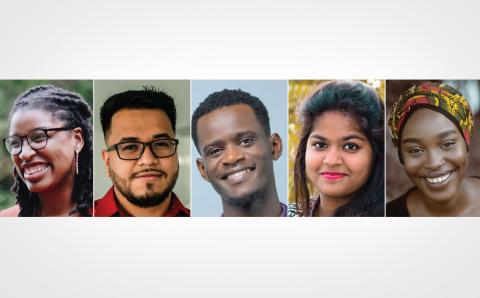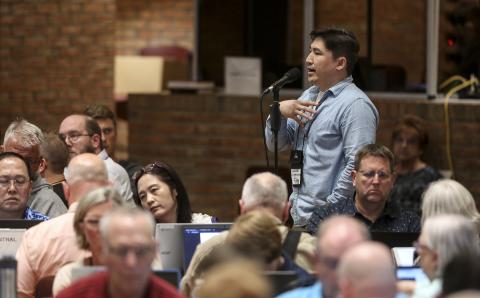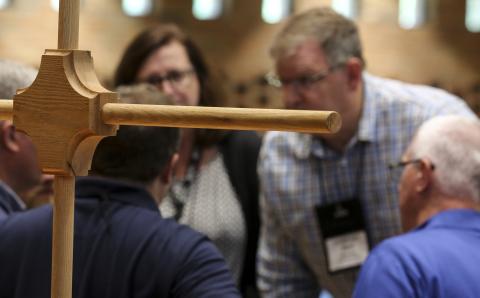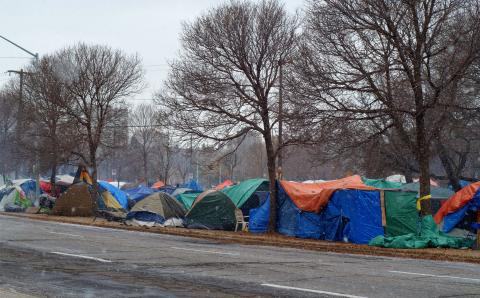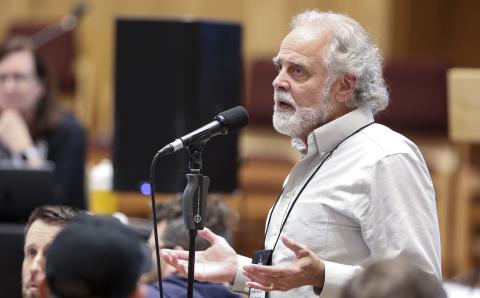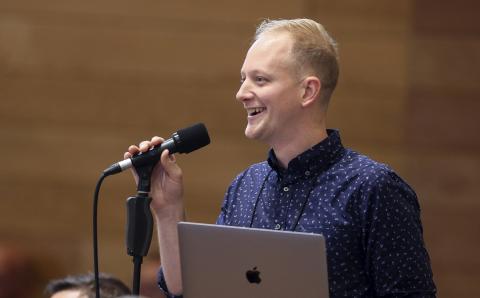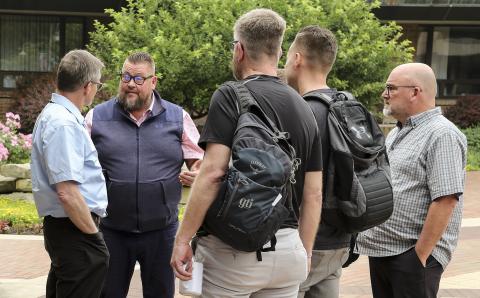An intergenerational group of 14 people representing different churches, most from the West Michigan area, spent their 2023 spring break in Texas—not on a relaxing beach but on the grim border between the United States and Mexico. They wanted to learn more about immigration and the circumstances that bring people to this border. Through the experience, they caught glimpses of hope in this area of conflict and controversy.
The group was hosted by the organization Abara: Borderland Connections (abara.org), a community of peace builders in the twin cities of Ciudad Juárez, Mexico, and El Paso, Texas.
“The staff of Abara are impressive, ethical, caring, knowledgeable, justice oriented, and sensitive,” said Karen Helder of Eastern Avenue Christian Reformed Church in Grand Rapids, Mich., “and the shelter staff on both sides of the border give their lives to this work in 40+ shelters that give (refuge) to those who have given up their safety, belongings, and health for the sake of hope for a better future for themselves and their families.”
Bev Abma of Friendship CRC in Grand Rapids led the group. It was her second time organizing a trip to the area through Abara, and she noted some changes since her first trip in January 2022.
“The 14 of us were part of a Border Encounter, and the itinerary was essentially the same on both trips,” Abma said. “However, the atmosphere and intensity seemed sadder this year.”
During its four-day stay in early April, the group met with border patrol officers, shelter workers, migrant advocates, retired government officials, pastors, and leaders from organizations such as Save the Children.
The group was told that there were 12 migrant shelters in Juarez housing about 2,000 people, but at least 8,000 more people live on the streets because of limited shelter space. Women and children get priority in the shelters, while the men get blankets from the Red Cross and fend for themselves outdoors. Officials warned the group many times that the streets in Juarez were very dangerous.
On one day the group helped organize clothes, towels, shoes, underwear, and other supplies in two different migrant shelters on the El Paso side of the border. Another afternoon they visited a migrant shelter in Juarez. There, Diane Dykgraaf from Friendship CRC sat at a table with Demar, an 11-year-old from Venezuela. They played board games with several other children from Venezuela and El Salvador, communicating simply through the knowledge of how to play the games and a desire to have fun.
“That day we were just people doing something fun and enjoying each others' presence,” Dykgraaf said. “We saw past the barriers of language, culture, skin color, and country.”
“The most impactful thing for me was going to the shelter in Juarez,” said Roman Burns, a 17-year-old from Allendale, Mich., who also played games with children at the shelter. “It was fun interacting with the people, playing Memory, and getting to know Demar and some of the other kids who were there."
Border patrol officers told the West Michigan group that on average they have 1,270 daily encounters in the El Paso sector with people crossing through openings in the fence, coming over the fence, or crossing the river. And that number is only going up.
After hearing the statistics and experiencing the conditions on the border, Dykgraaf concluded, “My mind could spin itself into a state of total hopelessness when thinking about all I learned. But even in this, I know that with God there is hope.”
About the Author
Kevin Hoeksema, CRC Communications


